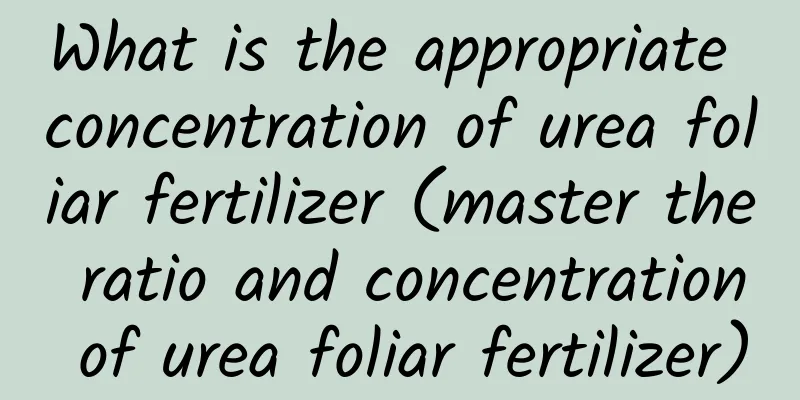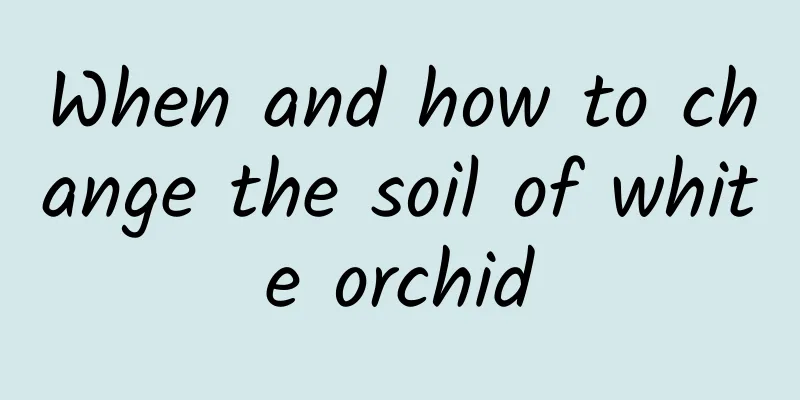What is the appropriate concentration of urea foliar fertilizer (master the ratio and concentration of urea foliar fertilizer)

1. Why can urea be used as foliar fertilizer?1. Urea is a quick-acting fertilizer with high nitrogen content and stable chemical properties. It works well as foliar fertilizer or topdressing. 2. Fast absorption. In the early stage of crop growth, especially some green leafy plants, the demand for nitrogen is large. Soil topdressing not only easily damages the root system, but also has a slow absorption and conversion rate. Ordinary granular fertilizers cannot be directly absorbed after entering the soil. They need to be transformed for a week to be converted into elements that can be absorbed by the root system. This can also be understood as decomposition. For this reason, spraying urea is particularly suitable for crops that need nitrogen deficiency. 2. What should we pay attention to when using urea as foliar fertilizer?First, concentration dilution Fruits and vegetables have different fertilizer requirements, so when using urea as foliar fertilizer, you should pay attention to the concentration. Second, improve the absorption rate In order to promote better and faster absorption of urea, some foliar fertilizer enhancers can be added to the diluted solution to increase the adhesion of nutrients on the leaves, such as Dehua silicone instant treatment and fission, which can effectively prevent high temperature and rainy weather. Third point, spraying time The time to spray foliar fertilizer should pay attention to the characteristics of crops. The main element of urea is nitrogen, which is more needed in the seedling stage or before flowering. Daily spraying can be done before 10 o'clock in the morning and in the evening, usually once every half a month. Fourth point, spraying site When spraying urea as foliar fertilizer, the nozzle should be pointed upwards and slanted towards the back of the leaves. This can increase the nutrient absorption rate. The following operation method will result in insufficient nutrient absorption. 3. How to use urea as foliar fertilizer1. Cereals The spraying concentration is 1.5-2% , that is, add 1.5 kg to 2 kg of urea granules to 100 kg of clean water. When spraying during the flowering period, the concentration of urea should be lower, and the fertilizer liquid can be sprayed on 5 mu of land. 2. Leafy vegetables For example, the spraying concentration for vegetables and cucumbers is 1-1.5% , that is, 1 kg to 1.5 kg of urea granules are added to 100 kg of water. 3. Fruit trees, apples, pears, grapes, etc. For fruit trees, 0.5% is appropriate , that is, add 0.5 kg of urea fertilizer to 100 kg of water and stir thoroughly to dissolve. 4. Solanaceae The best spraying concentration is 0.3% , that is, add 0.3 kg or 6 taels of urea to 100 kg of water. |
<<: When to plant melons outdoors (tips and techniques for planting melons outdoors)
>>: Why do tomatoes grow cracks? (Why do tomatoes grown at home tend to crack easily?)
Recommend
When is the best time to plant autumn cucumbers?
Planting autumn cucumbers is favored by many grow...
The meaning and symbolism of azalea
1. Forever yours Seeing this meaning, everyone mu...
What fertilizer is best for longevity fruit
Longevity fruit fertilization time When the longe...
When does hibiscus bloom?
When does hibiscus flower bloom? The flowering pe...
What is the difference between half-branch lotus and half-flowered lotus?
The difference between barbata and barbata Scutel...
When is the best time to sow spinach?
Spinach is rich in vitamin A, vitamin C, vitamin ...
What is the best season to plant yam?
Yam planting season and time Huaishan is planted ...
Do these radiation-proof plants really work? I was shocked by the truth!
Cactus or prickly pear Cactus or prickly pear is ...
How often should I water my Tabernacle?
How often should I water my Tabernacle? Generally...
Why are the leaves of the golden diamond drooping?
1. Improper watering 1. Reason: Diamond Plant lik...
How long is the growth cycle of copper coin grass?
Growth cycle of copper coin grass The general gro...
Can shrub roses be potted?
Can shrub roses be potted? Shrub roses can be pot...
What causes orange tree leaves to turn yellow and how to treat it?
There are many people who grow citrus fruits . If...
Is it harmful to eat too much passion fruit?
1. Cause nausea Passion fruit juice is rich in am...
How to grow okra
1. Sowing and seedling raising It is usually prop...









